A webinar was held on 19 January, 2021 on “Reset of US-Pakistan Relations” under the auspices of the Karachi Council on Foreign Relations (KCFR), with Chairman KCFR Ikram Sehgal in the chair. Honorable Federal Minister for Foreign Affairs Makhdoom Shah Mehmood Qureshi was the Principal Speaker while the Panel Speakers included Ambassador Robin Raphel, Ambassador Aizaz Chaudhary, Ambassador Zamir Akram, and Mr. Michael Kugelman. The webinar was moderated by Member Board of Governors KCFR Mr. Kalim Farooqui.
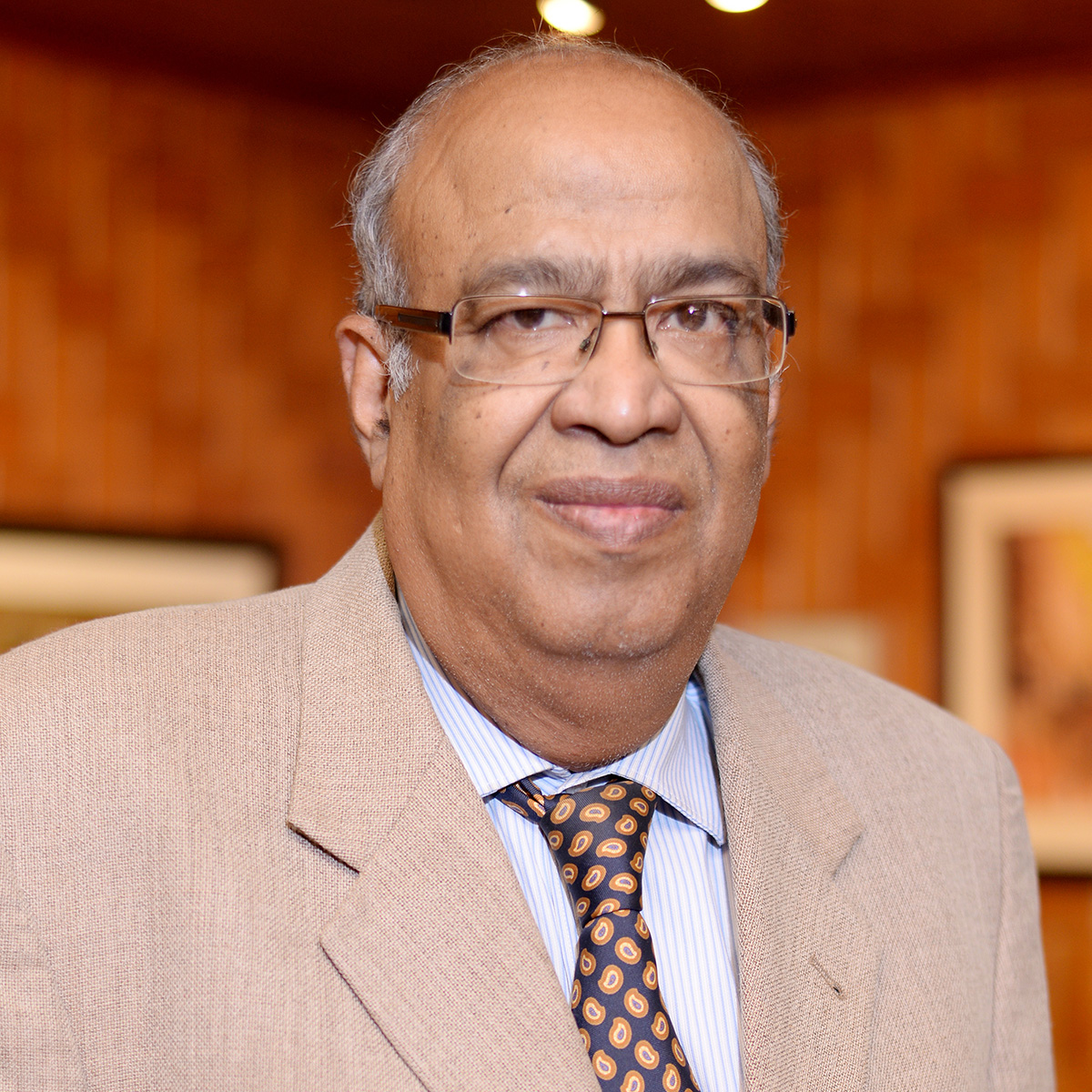 Mr. Kalim Farooqui: On behalf of the Chairman Mr. Ikram Sehgal, and members of the Board of Governors, I warmly welcome you sir, and our four very distinguished panelists who have found the time to be with us today. Ambassador Robin Raphel, Ambassador Aizaz Chaudhary, Ambassador Zamir Akram, and Mr. Michael Kugelman. The subject of our webinar today, taking place at an appropriate time as the new US Administration is about to take over in Washington in a few hours, is Reset of US-Pakistan Relations. Foreign Minister Qureshi envisages a foreign policy that is articulate and principled ensuring a peaceful neighborhood for development. Without further ado, I’m required to request the Foreign Minister Mr. Makhdoom Shah Mehmood Qureshi to address the members please.
Mr. Kalim Farooqui: On behalf of the Chairman Mr. Ikram Sehgal, and members of the Board of Governors, I warmly welcome you sir, and our four very distinguished panelists who have found the time to be with us today. Ambassador Robin Raphel, Ambassador Aizaz Chaudhary, Ambassador Zamir Akram, and Mr. Michael Kugelman. The subject of our webinar today, taking place at an appropriate time as the new US Administration is about to take over in Washington in a few hours, is Reset of US-Pakistan Relations. Foreign Minister Qureshi envisages a foreign policy that is articulate and principled ensuring a peaceful neighborhood for development. Without further ado, I’m required to request the Foreign Minister Mr. Makhdoom Shah Mehmood Qureshi to address the members please.
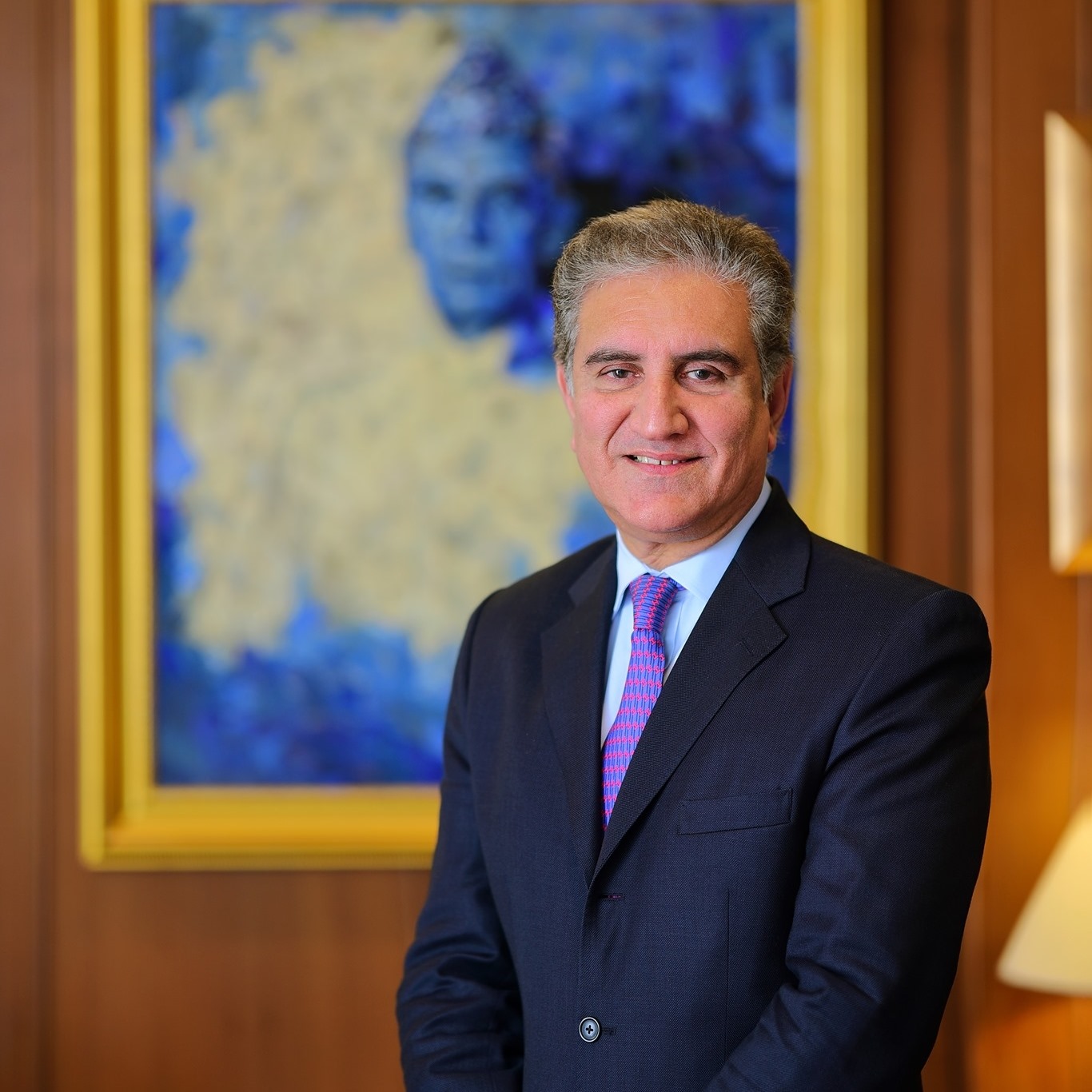 Foreign Minister Mr. Makhdoom Shah Mehmood Qureshi: Bismillah-ir-Rahman-ir-Raheem. Chairman Karachi Council on Foreign Relations Mr. Ikram Sehgal, Former Assistant Secretary of State for South Asia Ambassador Robin Raphel, colleagues, ladies and gentlemen, I wish to firstly commend Karachi Council on Foreign Relations for convening this seminar at a critical juncture and for giving me the opportunity to interact with and benefit from such distinguished luminaries. We are just hours away from the inauguration of the 46th President of United States. President-elect Joe Biden who takes over after what can only be described as an intense and unprecedented transition. As the new administration assumes the helm in Washington DC, this is an opportune moment to envision the direction of what I believe is amongst the most consequential relationships in South Asia. Pakistan-US relations have been consequential not only in terms of history when we were steadfast allies during the Cold War, and when Pakistan facilitated the building of bridges between China and the US, but they are consequential also in terms of what’s an uncertain future for the region and the world.
Foreign Minister Mr. Makhdoom Shah Mehmood Qureshi: Bismillah-ir-Rahman-ir-Raheem. Chairman Karachi Council on Foreign Relations Mr. Ikram Sehgal, Former Assistant Secretary of State for South Asia Ambassador Robin Raphel, colleagues, ladies and gentlemen, I wish to firstly commend Karachi Council on Foreign Relations for convening this seminar at a critical juncture and for giving me the opportunity to interact with and benefit from such distinguished luminaries. We are just hours away from the inauguration of the 46th President of United States. President-elect Joe Biden who takes over after what can only be described as an intense and unprecedented transition. As the new administration assumes the helm in Washington DC, this is an opportune moment to envision the direction of what I believe is amongst the most consequential relationships in South Asia. Pakistan-US relations have been consequential not only in terms of history when we were steadfast allies during the Cold War, and when Pakistan facilitated the building of bridges between China and the US, but they are consequential also in terms of what’s an uncertain future for the region and the world.
Distinguished participants, there has already been an exchange of messages between Prime Minister Imran Khan and President-elect Biden who has affirmed his interest in working with Pakistan on issues of common interest. President-elect Biden is no stranger to Pakistan, nor Pakistan to him. We are old friends. During his eight years as Vice President and earlier in his leadership positions in the influential Senate Foreign Relations Committee, President Joe Biden has developed deep insights on the dynamics impacting Pakistan-US Relations and South Asia.
His administration will include many familiar faces and experienced hands who know firsthand the value of close engagement between our countries and peoples. Although no strangers to South Asia, I believe President Joe Biden and his team will discover that a lot of water has flown under the bridge. Over the past four years, for better or for worse, the world has changed, the US has changed, the region has changed and so has Pakistan. The Afghan Peace Process, for which both the United States and Pakistan have worked so hard is at a pivotal juncture. The process is essentially meant to bring to a responsible end the longest war in America’s history. For this, there is bipartisan support. South Asia’s largest state is under the iron grip of fascism-inspired Hindutva ideology, which is not only illiberal but also racist, extremist and violent. From geopolitics of the past, Pakistan has pivoted towards geo-economics. The people of Kashmir are under an unrelenting siege. The world, vastly different in complexity animated by a different set of priorities and faced with a myriad of challenges is upon us. The pandemic, the global economic slowdown, climate change and the erosion of multilateralism are clear and present crises. Drawing upon our historic ties, the reset in Pakistan-US relations must develop shared understandings to deal with the challenges of today for a better tomorrow. Let me throw some light on how things have changed, and what I believe must be the pivots for a renewed partnership.
One: Pakistan’s security environment has vastly improved. At the cost of 83 thousand innocent lives and US$126 billion losses to our economy, we have turned the tide against terrorism. We have not only cleared the erstwhile tribal areas of all remnants of terrorism, but have also integrated the region into the political mainstream. Pakistan continues to take unprecedented actions against terrorist groups. Our journey from terrorism to tourism is exemplified most recently by the New York Times’ designation of Lahore as one of the top places to visit in 2021.
Two: Under the leadership of Prime Minister Imran Khan, a fundamental transformation has taken place in Pakistan. Our priority is to pursue economic growth and human development. We have declared on multiple occasions that Pakistan will never again be part of a regional conflict, that we will only be partners for peace. We have shown by words and by deeds that a dignified peace is what we desire and a dignified peace is what we will work for. The establishment of the Kartarpur Corridor and the return of the downed Indian pilot who had violated our airspace is one manifestation among many of this fundamental policy-focus.
Three: Nowhere is Pakistan’s vision for a peaceful neighborhood more manifestly evident than in the efforts we have made as part of a shared responsibility in support of peace in Afghanistan. While the road to peace in Afghanistan remains long and difficult, Pakistan and the United States have made progress that would have appeared improbable, if not incredible, just two years ago. Despite the challenges that lie ahead, the Afghan Peace Process still offers Afghanistan and the region its best chance for peace in 40 years. It is our hope and expectation that the Biden administration would persevere with it. While the United States can and must continue to count on Pakistan as a partner for peace in Afghanistan, there are other actors who do not share this vision. Spoilers have to be guarded against. Equally importantly, both our sides must remain cognizant that achieving an inclusive political settlement in Afghanistan would only be the first step towards peace. Pakistan and the United States would need to work together to facilitate Afghanistan’s transition from a war economy to a peace economy.
Let me conclude by saying that our shared interests, common aspirations for economic development and enhanced connectivity in the region, and this rare moment of hope for peace in Afghanistan provide a strong foundation for both sides to take the bilateral relationship forward. With hope and optimism, let us move ahead. I thank you.
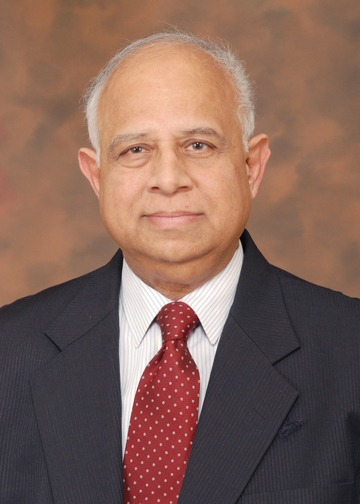 Chairman KCFR Mr. Ikram Sehgal: First of all, let me thank you for giving us the time. I know you’ve been busy. Your relationship with myself go back a long way, particularly when I once heard you in Brussels speaking at a very August gathering, which was co-hosted by East West Institute and the World Trade Organization, and you were so eloquent there that it was a pleasure. Now to see you at this critical juncture being the Foreign Minister of Pakistan is not only a pleasure but it is a necessity, and we are very mindful of the fact that you face very big challenges and that you are confronted. Just before you came on the screen, we had a massive cyber intervention from India, which almost broke our connection. We just managed to wave off that attack. So what you were saying, actually it came to pass. Actually later on, you know, it had already happened. We have very good speakers; Ambassador Robin Raphel, Michael Kugelman, Ambassador Aizaz Chaudhry, Ambassador Zamir Akram, and we hope to benefit by more interactions with you in the future.
Chairman KCFR Mr. Ikram Sehgal: First of all, let me thank you for giving us the time. I know you’ve been busy. Your relationship with myself go back a long way, particularly when I once heard you in Brussels speaking at a very August gathering, which was co-hosted by East West Institute and the World Trade Organization, and you were so eloquent there that it was a pleasure. Now to see you at this critical juncture being the Foreign Minister of Pakistan is not only a pleasure but it is a necessity, and we are very mindful of the fact that you face very big challenges and that you are confronted. Just before you came on the screen, we had a massive cyber intervention from India, which almost broke our connection. We just managed to wave off that attack. So what you were saying, actually it came to pass. Actually later on, you know, it had already happened. We have very good speakers; Ambassador Robin Raphel, Michael Kugelman, Ambassador Aizaz Chaudhry, Ambassador Zamir Akram, and we hope to benefit by more interactions with you in the future.
Mr. Kalim Farooqui: We have four distinguished panelists. The first speaker that we have on the list is Mr. Michael. Kugelman,
 Michael Kugelman: Yes. Well, thank you very much. Thanks to the Karachi Council for including me in this very distinguished panel on a very important and timely issue and it was great to hear the comments from the Foreign Minister. So the focus of this event is on the question of a reset in US-Pakistan Relations and I would argue that the relationship already experienced a reset a few years ago as was noted before when the Trump Administration decided that it wanted to work with Pakistan to help launch bilateral negotiations with the Taliban. And of course as we all recall the US-Pakistan relationship was in a pretty bad place during the early years of the Trump Administration, but once the two started cooperating on the Afghan reconciliation process, the relationship stabilized considerably and that remains the case today, so I think the big question as the next Administration prepares to take office tomorrow is not if the relationship can be reset which has already happened, but rather whether it might regress and lose the momentum that it has enjoyed over the last few years. And that’s because with the US drawing down preparing to leave Afghanistan, the future of US-Pakistan Relations is a bit uncertain and in Washington the relationship with Pakistan has often been seen through the lens of Afghanistan, so with the US on its way out of Afghanistan, the question is, will the relationship regress to its status say, during the 1990s when the withdrawal of Soviet forces from Afghanistan prompted the US to disengage from Afghanistan and the region and its relations with Pakistan decreased a bit or, will the two sides, US and Pakistan be able to find a new basis to anchor the relationship moving forward. I certainly hope it’s the latter but I think the simple and safe answer is it can go either way.
Michael Kugelman: Yes. Well, thank you very much. Thanks to the Karachi Council for including me in this very distinguished panel on a very important and timely issue and it was great to hear the comments from the Foreign Minister. So the focus of this event is on the question of a reset in US-Pakistan Relations and I would argue that the relationship already experienced a reset a few years ago as was noted before when the Trump Administration decided that it wanted to work with Pakistan to help launch bilateral negotiations with the Taliban. And of course as we all recall the US-Pakistan relationship was in a pretty bad place during the early years of the Trump Administration, but once the two started cooperating on the Afghan reconciliation process, the relationship stabilized considerably and that remains the case today, so I think the big question as the next Administration prepares to take office tomorrow is not if the relationship can be reset which has already happened, but rather whether it might regress and lose the momentum that it has enjoyed over the last few years. And that’s because with the US drawing down preparing to leave Afghanistan, the future of US-Pakistan Relations is a bit uncertain and in Washington the relationship with Pakistan has often been seen through the lens of Afghanistan, so with the US on its way out of Afghanistan, the question is, will the relationship regress to its status say, during the 1990s when the withdrawal of Soviet forces from Afghanistan prompted the US to disengage from Afghanistan and the region and its relations with Pakistan decreased a bit or, will the two sides, US and Pakistan be able to find a new basis to anchor the relationship moving forward. I certainly hope it’s the latter but I think the simple and safe answer is it can go either way.
I’ll very briefly articulate a skeptical analysis as well as a more optimistic one. So in terms of the former, I do fear that a disconnect is emerging in US-Pakistan relations, and why do I say that? Well, it seems to me as an analyst on the outside that the government in Pakistan has been relatively quiet about its expectations for US-Pakistan relations in the Biden era, but what has been said including what’s been said just a bit ago by the Foreign Minister, I fear that what’s being said about Pakistan’s hopes for the relationship may not find all that much sympathy with the next administration and I would describe this messaging falling into three categories. First, there have been calls for the Biden administration to rightly view Pakistan through an economic lens as a country that can serve as a critical node for investment, commerce and connectivity. Second, I’m hearing officials in Pakistan expressing hope that the next administration will pursue a more balanced relationship with Islamabad and Delhi, and third; I’m hearing comments from officials in Pakistan signaling a desire for Washington to engage more on the Kashmir dispute and to pressure New Delhi to curtail its repressive acts in Kashmir. So the second and third categories of messaging are not new and I think the first category has become increasingly common in more recent times and especially since the launching of the China-Pakistan Economic Corridor. But I fear that the incoming administration is unlikely to be receptive to this messaging. First in terms of the economic frame, I think that Pakistan is very right and correct to push for a more economics-focused US-Pakistan partnership. We don’t hear about it as much as we should in Washington that bilateral trade has been quite a success story. There was a new record achieved and trade volume a few years ago in 2018 when there was almost 7 billion dollars bilateral trade between the two sides. With America drawing down in Afghanistan now is the time to identify new anchors for the relationship. But I think the Biden administration, like its predecessor, will be wary of some dimensions of Pakistan’s investment climate, which has long raised red flags in Washington due to a variety of factors, taxation issues, insufficient enabling legislation, red tape, even with the security situation having improved so much which is obviously a boost for the US investment community looking to Pakistan. The US-Pakistan strategic dialogue and initiative of Biden’s former boss Barack Obama, that may be a thing of the past but this does not mean there can’t be more sustained cooperation on a broad array of issues albeit through more unofficial and less structured channels. And this gets me to the heart of the matter and I’ll conclude here. The best and healthiest way I think for the Biden administration to pursue its relationship with Islamabad is to approach it on its own merits not through the lens of Afghanistan or India or China but through the lens of Pakistan and I think the best way to do that is to emphasize more cooperation on non-security issues and outside official channels.
There’s so much potential for collaborations and there’s a precedent to build on and I think that the Biden Administration with its emphasis on global problems needing multilateral and global solutions, things like public health, climate change, cybersecurity, the Biden administration could be a big booster of US-Pakistan partnership on these types of issues. So thank you very much.
Mr. Kalim Farooqui: The next panelist that we have, Ambassador Zamir Akram. Sir, the floor is yours.
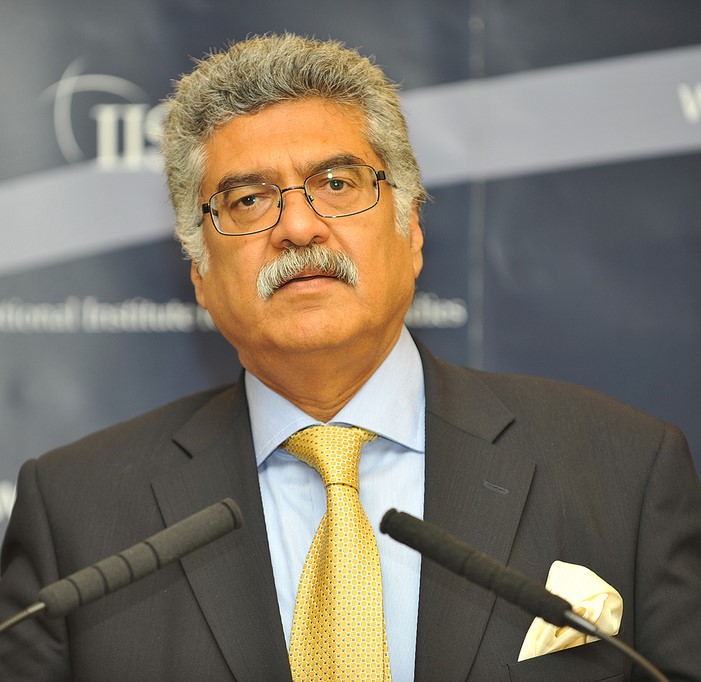 Ambassador Zamir Akram: Let me begin by thanking the Karachi Council on Foreign Relations for inviting me to participate in this very important webinar. I think as a Pakistani, I would advise Pakistanis to be realistic in their expectations of the relationship with the United States under the new Biden Administration. One of the issues is that the foreign policy of any country is driven by its National Security interests and personalities do play a role but a role that is marginal. It’s really the National Security interests, the long-term interests of a country that determine the direction of its foreign policy. So a change of leadership in Washington does not necessarily mean that the parameters of US foreign policy are going to change dramatically. That’s the first thing.
Ambassador Zamir Akram: Let me begin by thanking the Karachi Council on Foreign Relations for inviting me to participate in this very important webinar. I think as a Pakistani, I would advise Pakistanis to be realistic in their expectations of the relationship with the United States under the new Biden Administration. One of the issues is that the foreign policy of any country is driven by its National Security interests and personalities do play a role but a role that is marginal. It’s really the National Security interests, the long-term interests of a country that determine the direction of its foreign policy. So a change of leadership in Washington does not necessarily mean that the parameters of US foreign policy are going to change dramatically. That’s the first thing.
Secondly, I think we as Pakistani should recognize that in the American scheme of things Pakistan does not occupy a very central position. The attention to Pakistan many times has been due to tactical reasons rather than for strategic reasons. And that we saw during the Cold War vis-à-vis Afghanistan and the Soviet invasion and occupation of Afghanistan, that was the time during the Cold War when our relations were very close and then post-Cold War because of terrorism again with relation to Afghanistan, the relationship with Pakistan and the United States had deepened, but other than that, most of the time the relationship has been, I would say, one of benign neglect from the United States. And from Pakistan, of course being a smaller country relations with the United States, a major power have always been of strategic importance, but for the United States relations with Pakistan, as I said, had a tactical importance Now, how would these conditions going forward determine this relationship? The point is that we have not involved throughout the course of our relations, a relationship which is centered on and with Pakistan in and of itself. It’s been in connection or relationship to other factors as I mentioned, terrorism and before that the Soviet Cold War times when we were helpful in Afghanistan.
The last point is that I would think that the United States under President Biden would be more interested in strategic stability in South Asia as compared to the Trump Administration, and that requires engaging with both India and Pakistan which are both nuclear weapon states and trying to manage, if not resolve, but certainly help to manage the differences between these two countries trying to avoid the kind of situation that emerged in February 2019. I do not believe that the US is going to expend a lot of its capital on persuading or arm-twisting the Indians to resolve the Kashmir dispute, but they will certainly try and privately perhaps, try and convince the Modi government to lower the Human Rights violations and perhaps even engage with Pakistan for a dialogue but I don’t really put much faith in that. But in any case, I think the more important thing for the US would be to try and ensure strategic stability in South Asia between two nuclear weapon states. I think that would be an important aspect.
Mr. Kalim Farooqui: A very comprehensive perspective that you have given between what is to come between the United States and Pakistan. Thank you very much ,sir. The next panel is that we have is the name very well known in Pakistan Ambassador, Robin Linn Raphel.
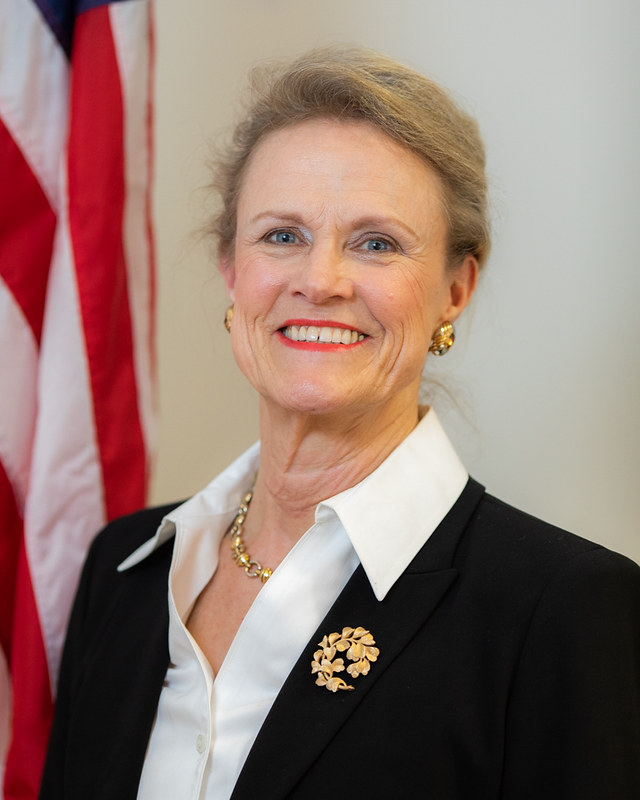 Ambassador Robin Linn Raphel: Thanks to the Karachi Council for this opportunity to see so many familiar faces. I really do appreciate it. I agree with Michael Kugelman that a certain reset has already taken place over the last few years in US-Pakistan relations, but there’s still a need for more to be done in that regard. I think the key to any constructive reset or whatever term you wish to use is to be honest with ourselves and with each other and to tell each other the truth and repeat it so often that it actually becomes accepted.
Ambassador Robin Linn Raphel: Thanks to the Karachi Council for this opportunity to see so many familiar faces. I really do appreciate it. I agree with Michael Kugelman that a certain reset has already taken place over the last few years in US-Pakistan relations, but there’s still a need for more to be done in that regard. I think the key to any constructive reset or whatever term you wish to use is to be honest with ourselves and with each other and to tell each other the truth and repeat it so often that it actually becomes accepted.
Now the important truths that we’re dealing with here are twofold. Number one, Pakistan is an important country, in and of itself. Many of the speakers have noted this. I’ve been saying this for decades. It’s got natural resources, a large population, entrepreneurial talent and a strategic location both in economic and geopolitical terms. It has entrée to the Muslim World, a capable military and nuclear weapons. So it’s an important country, and the US for its part is still the preeminent global power. We have the largest economy in the world and the greatest security, political and cultural reach of any country, and as such it’s always been an important anchor-relationship for Pakistan. Now, despite this from the Pakistani perspective, the US has appeared to be an inconstant friend, indulgent when we needed you and judgmental when you didn’t do we wanted. And the US has appeared to be unable or unwilling to take into account Pakistan’s own National Security concerns particularly with regard to India as we’ve heard today. The US, for its part has been frustrated when it saw Pakistan’s, what we could call insufficient support for its efforts in Afghanistan despite generous military and economic assistance, and the US has been perplexed by what it saw as Pakistan acting against its own long-term interest particularly in support of various militant groups. And I would argue that neither side worked hard enough to understand the other and accept the others constraints, and the result, of course was this unhelpful narrative of the double game and the lack of US appreciation for Pakistan’s sacrifices and so on, and while to a large degree, this is dissipated, it’s still there. And I would argue it’s still there in the minds of some of the people who are returning into government in the Biden administration. So it’s this narrative and the misunderstandings behind it that we all want to change.
Last but not least, Pakistan needs to continue the work on its long-term project of getting its own economic house in order. This is really important and Pakistan has plenty of excellent economists who know what to do. The issue is implementation. And again, I know Pakistanis are already thinking along those lines. The last point I would make, is how important it is to invest in efforts to tell Americans about what makes Pakistan an exciting and appealing place – the youth, the entrepreneurial dynamics, the spectacular vistas, the history, the culture and so on. You really need to have Pakistan Studies chairs in US universities like you did once upon a time in the think-tanks and you need a steady stream of information on Pakistan which widens the aperture through which Americans view Pakistan. This is really important and I hope, the foreign minister mentioned the need for this and I hope that Pakistan will follow through. I will stop there. Thank you.
Mr. Kalim Farooqui: Thank you Ambassador Raphel. The next panelist is a name very well known in Pakistan and that’s Ambassador Aizaz Ahmed Chaudhry. The floor is yours Sir.
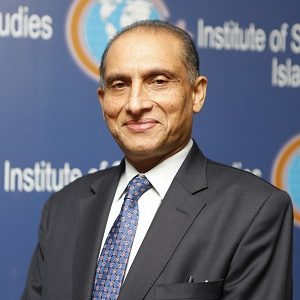 Ambassador Aizaz Ahmed Chaudhry: Thank you Mr. Farooqi, and let me start by commendation to Karachi Consular on Foreign Relations and its team led by Mr. Ikram Sehgal for holding this second session of the important discussions on a reset of US-Pakistan relations. Overall let me make three points. Pakistan-US relations have always oscillated between highs and lows. However, the last four years were I think amongst the lows of the relationship mainly because the two countries, the two governments were not talking to each other at the political leadership level, and with Biden coming to power tomorrow, we do hope that there will be opportunities for the leadership-level contact. I heard Robin say that perhaps it would be more at the working level and less at the leadership level, but I hope that changes, because it would be important at least at the Secretary of State level for those contacts to be initiated early on.
Ambassador Aizaz Ahmed Chaudhry: Thank you Mr. Farooqi, and let me start by commendation to Karachi Consular on Foreign Relations and its team led by Mr. Ikram Sehgal for holding this second session of the important discussions on a reset of US-Pakistan relations. Overall let me make three points. Pakistan-US relations have always oscillated between highs and lows. However, the last four years were I think amongst the lows of the relationship mainly because the two countries, the two governments were not talking to each other at the political leadership level, and with Biden coming to power tomorrow, we do hope that there will be opportunities for the leadership-level contact. I heard Robin say that perhaps it would be more at the working level and less at the leadership level, but I hope that changes, because it would be important at least at the Secretary of State level for those contacts to be initiated early on.
Second, I want to distinguish between G2G contacts and P2P contacts. I have always done that. I believe that the Government-to-Government contacts have been under stress in the last four years, previously too but the People-to-People contacts have always continued, always, and they have been robust. Thanks for the linkages like commerce and trade, education, health, agriculture and many other fields, defense counterterrorism and not to forget the million plus Pakistani diaspora in the US.
The third point I would like to make is that my experience tells me that US leadership views or tends to view Pakistan through one or more of the five lenses. I think this has been alluded to by my other colleagues, I think more so through the lens of security. And in fact at times the relationship has been described as having been securitized, and the second lens is now emerging quite rapidly, which is China, because of the US-China competition. Third, of course is Afghanistan, fourth is India and fifth is the nuclear program. This restricted aperture-like views of Pakistan have tended to underestimate the significance of Pakistan on its own merit. I hope that under Biden administration there will be a broader view of the relationship. I do take the point that many of the speakers have made that the relationship will be sustainable only if we don’t view it through any one of these lenses but through a broad-based approach in the areas which are important in their own bilateral context. I would say that this is an important relationship, I believe in this relationship, I think we have benefited from this relationship, but it is time that we don’t view it from any one particular lens but work on the areas on which there is Convergence in the bilateral context. Thank you.
Question and Answer Session:
 Dr. Huma Baqai: Assaslam-o-alaikum Excellency. It is an honor and a pleasure to interact with you once again. My question is fairly simple. With more and more tangible evidence mounting against India, what is the Foreign Office’ strategy to take it beyond just highlighting it? Will our diplomatic offensive take it to the next level under the new administration in the US making it multi-pronged? Are we looking at actually cultivating Senators and Congressmen in the United States to highlight the issue with president-elect Biden more committed to multilateralism and human rights?
Dr. Huma Baqai: Assaslam-o-alaikum Excellency. It is an honor and a pleasure to interact with you once again. My question is fairly simple. With more and more tangible evidence mounting against India, what is the Foreign Office’ strategy to take it beyond just highlighting it? Will our diplomatic offensive take it to the next level under the new administration in the US making it multi-pronged? Are we looking at actually cultivating Senators and Congressmen in the United States to highlight the issue with president-elect Biden more committed to multilateralism and human rights?
Foreign Minister Shah Mehmood Qureshi: To begin with, let me reiterate that our focus has shifted towards geo-economics, and that demands peace, peace in the region and that is why we have a new approach to Afghanistan and we are actually facilitating peace over there. We wanted a good healthy relationship from the Eastern side with India as well. Unfortunately, the present regime has by their actions vitiated the atmosphere.
Now, anything with the situation, I understand that they have strong linkages and preferences for India for whatever reasons but what we want to tell them is, we are for peace, we have never shied away from engagement, from dialogue, but the environment that is being created is not very healthy.
Question: It has been observed that historically Pakistan’s foreign policy has been swinging from one extreme to the other. In the 50s and 60s, Pakistan’s foreign policy tilted all the way towards the USA. We were totally allied with USA, witnessed the Baghdad Pact, SEATO and CENTO. In the process, we incurred the enmity of the other superpower i.e. the USSR. Do you think your Excellency, that there has been an unbalance in the foreign policy of Pakistan historically?
Foreign Minister Shah Mehmood Qureshi: Pakistan understands the importance of the United States which is a global economic power. United States is a military power, you know, it’s a technological power, and we cannot ignore the United States. We’ve always been keen to remain engaged, and remain constructive with the United States. We have convergence in so many areas, and we have had differences. Those differences can also be talked over and ironed out. I think with engagement, we can develop a better understanding of a changing world. This region is changing significantly, so we have to have a balanced approach. We do not want to be seen in either one camp or the other camp. Pakistan’s interests are paramount and keeping those interests in view, we are willing to engage with everyone.
Mr. Kalim Farooqui: Question from Mr. Majeed Aziz to Ambassador Raphel. He has been talking about you, he knows you and has met you. His question is, President Elect Joe Biden when he was Vice President once said to Hamid Karzai “Pakistan is 50% more important than Afghanistan.” The question Ambassador to you is, will this continue in the Biden administration?
Ambassador Robin Raphel: I suspect that president-elect Biden may well not say that publicly but it really does reflect the reality which I opened with, which is Pakistan is an important country. It’s much bigger, has more resources, more people further along the development spectrum than Afghanistan, so in terms of global importance, I’m sure he will continue to think that, but I would also reiterate that president-elect Biden has always wanted to reduce the US presence in Afghanistan, and he never really went along with the huge surge and so on and so forth which ultimately proved fruitless so he was a wise man, but I think that hasn’t changed, so I don’t think you’ll see a reversal of the Trump policy in Afghanistan of gradual withdrawal of troops.
Mr. Kalim Farooqui: There’s another question from Sadaf Khalid. What do you suggest for Pakistan and US to work actively for Climate Change through policies and projects like B2B?
Michael Kugelman: I’ll be brief. I think the way forward here lies in clean energy, technology transfers, and I think the US has a comparative advantage in this field, and I’m talking here about the US private sector. Clearly there’s a strong demand for this in Pakistan, especially given that your current government has a very strong, demonstrated commitment to climate change mitigation and clean energy. And I think that US companies can really be useful for the provision of technology, for example, enhance Pakistan’s capacity to store solar power through better battery capacity. That would be just one of a variety of examples, but I think to emphasize what other speakers have said; we really need to look at that at unofficial channels working through the private sector.
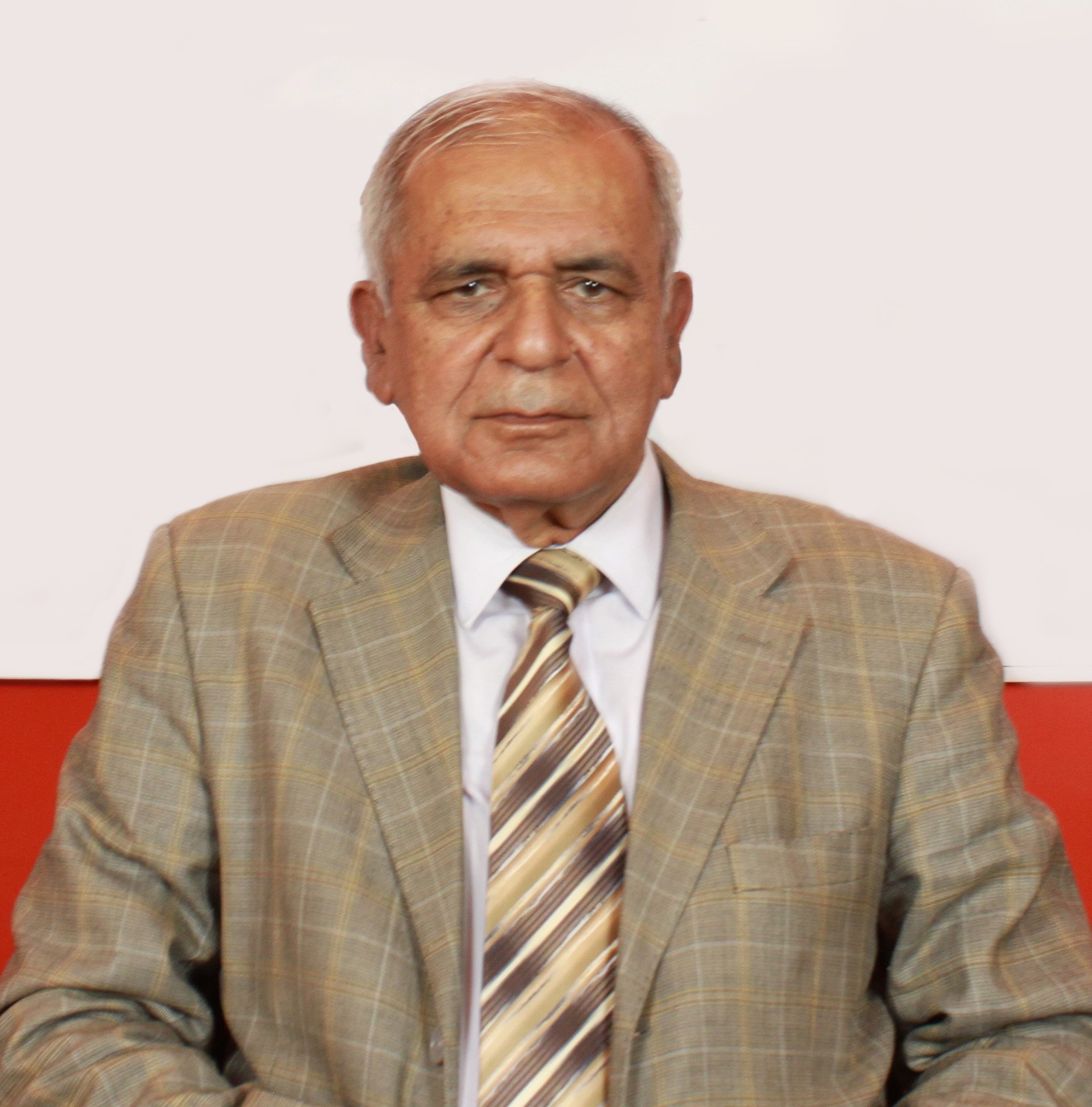
Mr. Sadeed Malik: I request you for your concluding remarks, Chairman Ikram Sehgal.
KCFR Chairman Ikram Sehgal: Thank you, Mr. Sadeed Malik. It’s a great honor and a privilege to have listened to such great speakers. I would like to start off on a very personal note. From the age of 6 to 11, I was educated by a Texas nun, in a Catholic Convent and brought up as a good Muslim. One of the things I learned there very much was that the Americans are fair people and once they understand what is right and wrong, they do go and be fair. Unfortunately because of foreign policy constraints and geostrategic constraints, things have gone past that. I would just like to say this; Pakistani narrative is wrong, and I learnt that to good effect, when starting, if I may say so, from the time that we stood up to the United States and went ahead with our nuclear bomb explosion. Because that had to be done not for any other reason but for psychological reason; the entire population was suffering from that particular pressure that India has the bomb, they are going to do this to us, etc. Even though it was a political decision, there was a lot of pressure from the armed forces and we went ahead with that. However this changed, I remember Colin Powell in his book said he told President Bush that we have seven important issues that we must take up in Pakistan and if we are able to get three of these issues in the next month or so, we will be happy, before they went and attacked Afghanistan. Then he spoke to Gen. Musharraf, and Gen. Musharraf for his own reasons, in two minutes agreed to all seven and Colin Powell was in a state of shock when he went back and said ‘they agreed to all seven of them’.
I think that was the starting point of all it all, but even then the relationship remained more or less on an even keel till United States started looking at us through Raymond Davis’ eyes. Once Raymond Davis Eyes came along, then Osama Bin Laden incident came and everything went south. Then you know, Ambassador Cameron Munter came and after that came various Ambassadors, and ultimately I remember in fact, it’s very coincidental, but it was a talk arranged by Michael Kugelman for me in Washington DC at the Woodrow Wilson Center where Ambassador Raphel was there, and three other ambassadors Richard Olson, Ambassador Cameron Munter, five US ambassadors who had been to Pakistan, and they said the same thing to me, talked about the Pakistan fatigue in Washington. It was very difficult to explain at that point of time, and I came away in a state of despondency that how this was going to change, but the thing is it did change, and that narrative must change. Our narrative may change because what are we today? We are South Asians, we are Central Asians and we are part of the Middle East. We are the geopolitical pivot; China Pakistan Economic Corridor and the BRI puts us in a different ballgame. Whatever the changing dynamics, we at the moment cannot afford to take sides, forget United States and Russia and China, we cannot afford to take sides between Saudi Arabia and Iran. Iran is a big neighbor of ours. Saudi Arabia is a historical friend of ours. Therefore, we have to go and toe that line where we have a neutral policy and as far as we are concerned, we must encourage investment. We can forget about economic aid. I think that the day of economic aid to Pakistan is over. Today there are 26 billion dollar power projects under the CPEC, the turbines have been made by Dongfeng Electric Company or other companies in China under license from General Electric in USA, so in an indirect way the USA is participating in CPEC. What we have to do is to encourage them that our narrative has changed, we are a different country. We are a geo-economic gateway not only for Eurasia, for Central Asia and MENA, but if we come to sort of terms with India, we are a gateway to South Asia and Southeast Asia. Imagine the boom that would take place. We are a different country. People don’t leverage this; we have the second largest copper and gold reserves in the world, we have the third largest coal reserves in the world, we have the fourth largest cotton and cotton textile industry in the world, we are fifth largest milk producing country in the world, we are the sixth largest rice producing country in the world, seventh largest wheat producing country in the world, we have nuclear means, we have the means to deliver them. No other country except India feels threatened by us, including Afghanistan, China, or Central Asia. India feels threatened because of the only reason that they threaten us, so I think we need to disengage from there.
We need to talk to the United States, that we are not worried at all about your relationship with India. It has to be and it will go on. What we need is a new relationship with US based on the new realities. We have to have a balance in the relationship. We cannot dwell in the past, we have to look at what we can do in the future. We have a new beginning with the Biden administration, the Trump administration for us at least helped us in the sense that they moved towards negotiations with Taliban, and that they did with excluding India from the talks. Makhdoom Sahib, it is my pleasure to thank you again, I know you have to go to another meeting. I would like to thank each of the speakers personally, Khalid Mir our co-Chairman who has been part of the process for this webinar, and then of course, Ambassador Robin Raphel, Ambassador Aizaz Chaudhry, Ambassador Zamir Akram, and of course my friend Michael Kugelman, Thank you all.




